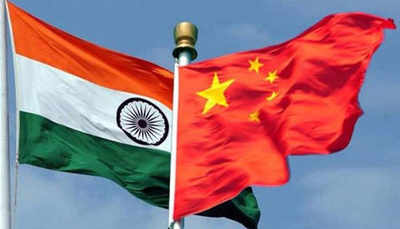- News
- India News
- Can't change India's mentality on OBOR, but doors of cooperation open: Chinese media
Trending
This story is from December 27, 2017
Can't change India's mentality on OBOR, but doors of cooperation open: Chinese media

(Image used for representation)
An op-ed in China's Global Times puts forth that there are three main contentions marring bilateral relations between New Delhi and Beijing - the border dispute, the Tibet issue and India's wariness of China-Pakistan amity.

Bilateral relations were further strained by China's firm opposition to India's entry into the elite Nuclear Suppliers Group, as well as it's blocking of New Delhi's petition to place Jaish-e-Muhammed chief Masood Azhar on the UN's list of global terrorist.
"On these issues, the two nations should further exchange views and remain patient, which helps reach consensus more easily than public pressure and censure," the opinion piece advised.
2017 was also the year of the long drawn-out Doklam standoff, which "pushed the two Asian powers to the brink of war, becoming the biggest crisis between them in the past 55 years", the editorial claimed. In the end, the tense face-off was resolved through diplomatic channels, which "realigned the development Beijing-New Delhi relations in the right direction", said Chinese foreign minister Wang Yi. But the incident also signaled a historic turning point and will set the tone for bilateral military relationship between India and China in 2018 and beyond.
"From an optimistic perspective, the standoff will prompt the two countries to deepen strategic communication and control disputes to usher them in a new era of development. But looking through blue glasses, the confrontation has fully exposed all contradictions between the two neighbors and only urged them to maintain sharper vigilance against each other," said the Global Times op-ed.
On the subject of regional cooperation, Beijing's stratagem to lure India into the One Belt One Road Initiative (OBOR) figures prominently. Despite New Delhi's objections, China remains optimistic that the economic benefits will outweigh sovereignty concerns and India will participate in the multi-billion dollar project.
"Beijing knows it will not be able to change India's mentality and judgment in 2018, but will not close the door of cooperation," it observed.
The op-ed also chastised India for allegedly trying to bar its south Asian neighbours from forging closer cooperation with China. On the other hand, it touted China's involvement in Sri Lanka's Hambantota port and the K P Oli-led communist government in Nepal as signs of burgeoning friendship with the two nations.
Since Beijing and New Delhi have wide-ranging common interests on regional and global affairs, the two should further strategic cooperation instead of adopting tactics that may worsen relations, the editorial said.
"2017 is the worst year for China-India relations. But if India would like to meet China halfway and make concerted effort, 2018 will probably become the best year for their bilateral ties," it concluded.
End of Article
FOLLOW US ON SOCIAL MEDIA










